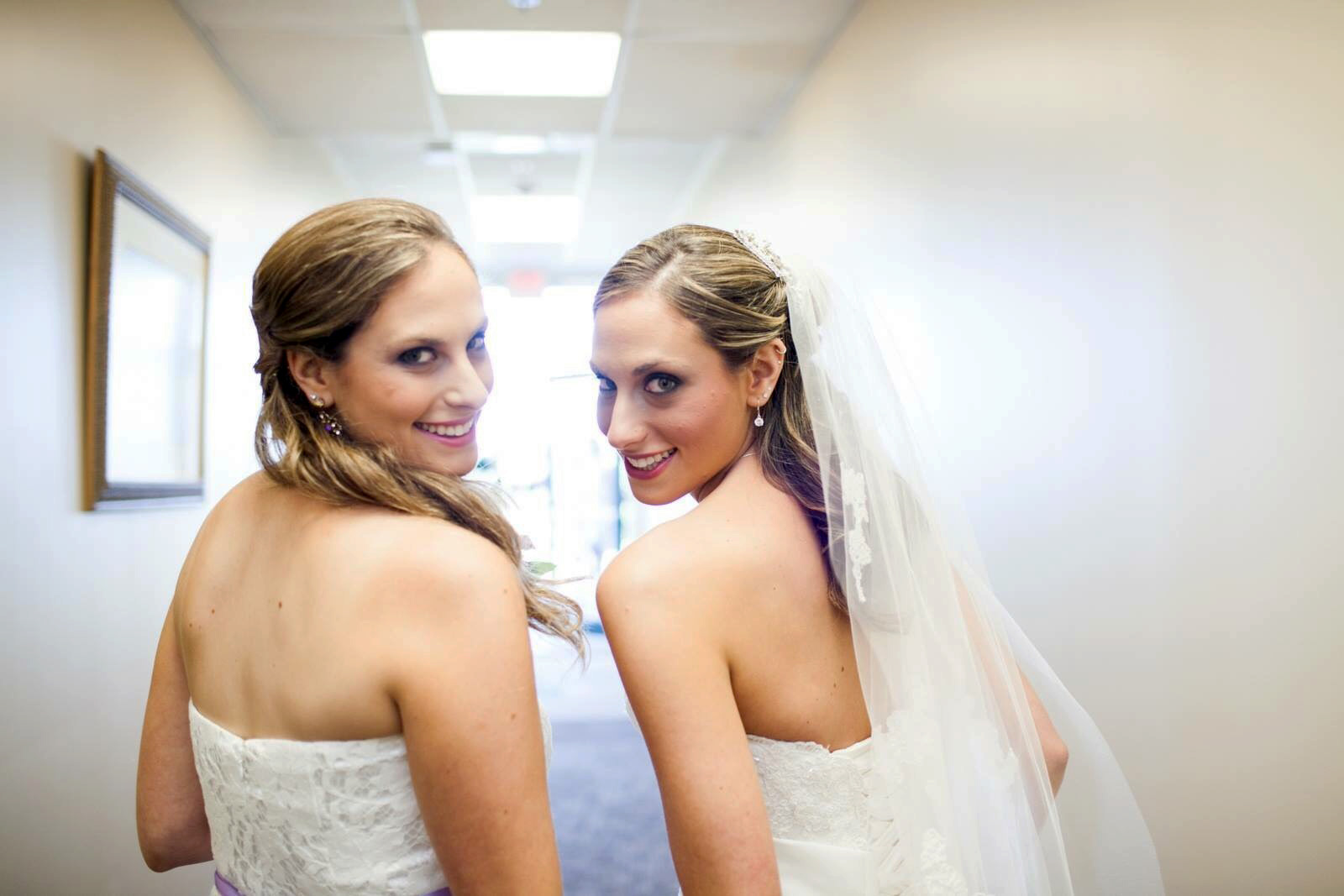Do your family members have the right to access your genetic code?
After deciphering the genome of a woman, her twin sister had questions about privacy.

The twins Samantha Shilit (left) and Ariel Shilit Nytenson (right) at the wedding Nitenson in 2013
In August 2015, Samantha Shilit visited her therapist for a blood test. She was a PhD candidate at Harvard, specialized in human genetics, and she was very interested in unlocking the secrets of her genome with the help of a complete transcript providing a complete listing of human DNA.
Patients must consent to full DNA decryption or any other test. But no laws forbid them to do anything with their genetic information, nor do they require the intervention of the patients' relatives. And this raises questions of ownership of the genetic code - after all, family members share many of the properties of this code, and may be carriers of similar, most genetic abnormalities associated with various diseases.
When Shilit received the test results, she did not think that these results would excite her twin sister Ariel Shilit Nytenson, who studied neurobiology at Brown University. Together, they described their experiences in an article for the Journal of Genetic Counseling .
')
“Your genes don't belong to you,” Nitenson says. In Shilith and Nytenson, identical twins, the genetic code is almost identical. So all the important information that could be obtained from the Šilit test is also applicable to Nitenson.
But Nytenson, unlike her sister, was not eager to find out what possible mutations are hidden in her DNA, so she was concerned about the availability of access to her genocode from other people. She did not want this information to be used for research purposes or that the insurance company used the information to discriminate against it. In 2008, the US Congress passed a law on the inadmissibility of discrimination on genetic information, which prohibits genetically discriminating people in hiring and calculating health insurance for health, but does not prohibit the use of information to calculate life insurance, disability or long-term health insurance.
David Flannery, medical director of the American College of Medical Genetics and Genome, an organization made up of genetic professionals, says that concerns about privacy and access to genetic information are not new. But these problems have become more complicated after in 2013, complete gene transcripts became commercially available [ quick example : 38 laboratories in the US offer a complete genome decoding at prices starting at $ 350 - approx. trans. ]. Tests give out huge amounts of data, only a small fraction of which can be associated with health risks.
It turned out that the results of the Shilit test showed the presence of a fairly healthy genome. They carried very few diseases of moderate severity, but one of them became dangerous when Nitenson became pregnant with her first child this year. One of the mutations could cause problems during childbirth. Some common methods of pain relief and maternity care techniques could be risky for her and her child. Armed with this knowledge, Nitenson, who is on the 28th week of pregnancy, together with the midwife began to make a special plan for childbirth.
Nitenson did not want to disclose the details of this anomaly because of concerns about the privacy of her unborn daughter, although her sister was ready to share her data. But Shilith and Nitenson agreed on what they agreed to share, and what should remain private.
Laura Hercher [Laura Hercher], a professor at Sarah Lawrence College, who teaches ethical issues in genetic counseling, says their contract is an example of an ideal scenario when a family member decrypts the genome.
Agreements for the passage of the complete decoding of the genome and the exome are, in her words, very different. Some companies conducting their tests have their own forms of agreements, some clinics and health systems have their own procedures for discussing the benefits and consequences of genetic testing with patients. Most tests require the signature of a general practitioner, regardless of his competence in genetics.
Shilith says she told the doctor who approved the test about her twin, but they never had any discussion of the consequences of the test for her sister. Hercher says that doctors are responsible for asking the patient to notify their family members in cases where serious diseases have been identified in genetic tests. But in the end, “family members have no veto” to make a decision on genetic testing.
Source: https://habr.com/ru/post/372925/
All Articles